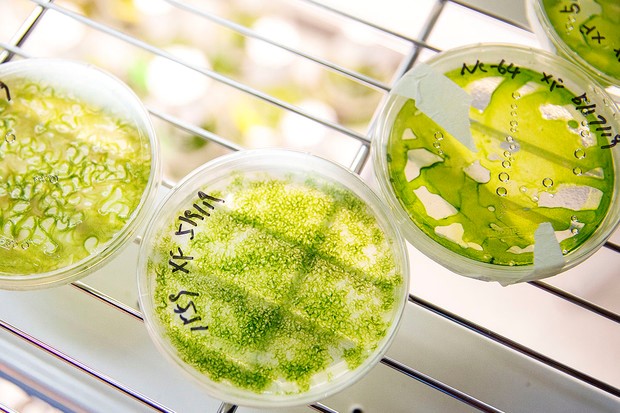Project helps investigate carbohydrate-active enzymes, such as bacterial enzymes in gut that break down indigestible fibrous feeds.
August 1, 2019

With entire genomes available for study, finding specific genes of interest is challenging. University of Nebraska-Lincoln bioinformatics specialist Yanbin Yin is creating advanced computational tools to quickly identify a class of enzymes found in all living organisms.
Yin’s tools are aiding research, including his own, into gut health, biofuel production, crop diseases and the evolutionary past, according to an announcement from the university.
“If you sequence a plant or bacterial genome, there are probably tens of thousands of genes, but just 5% of those genes are these enzymes,” Yin, associate professor of food science and technology, noted. “If you do experiments, it could take 20 or 30 years to figure it out. With this software system, you can do it in five minutes.”
Yin and his team are focusing on carbohydrate-active enzymes, or CAZymes, the enzymes that produce, modify and break down all carbohydrates. He’s building on his earlier work that identifies CAZymes within genetic code researchers upload to a website.
Now, Yin is advancing his software to analyze and classify CAZymes at a more detailed level. The software looks for key features within genetic code to distinguish among different CAZyme groups and predict how the enzymes function, the university said.
Yin is creating computer algorithms that learn and improve as data are added. His starting point is a CAZyme database -- compiled from the scientific literature and maintained by other researchers -- which he’s using to train his identification software to package into a free, user-friendly website for CAZyme researchers.
“Our contribution is to have a software system that can learn from those training data sets and make predictions,” Yin said. The software will give researchers the ability to better understand the CAZymes they’re investigating.
Because CAZymes provide critical functions in nature, the tools will speed research across a wide variety of disciplines. Bioenergy researchers, for instance, are investigating microbial CAZymes that break down complex carbohydrates into simple sugars that can be converted into biofuels. Harnessing this ability would allow biofuel production from agricultural waste.
Yin’s team is using the software to identify and investigate the CAZymes of beneficial bacteria living in the gut. These bacterial enzymes break down indigestible fibrous food into sugars the host can use, so his research could lead to improved human and animal health, the university said.
You May Also Like


.png?width=300&auto=webp&quality=80&disable=upscale)
